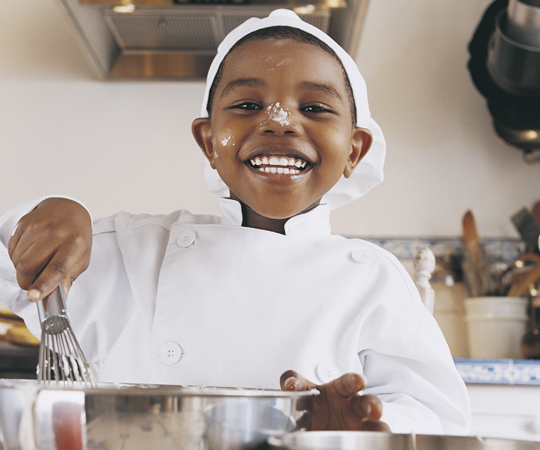Tragedy Strikes! at school – with Marie Reynolds
Shooting on the School Compound
Violent Death of a Classmate
Unexpected Tragic Loss of a Teacher’s Life
Students in the the Caribbean today face a remarkable overdose of tragedy close to home. We sat with Marie Reynolds, pediatric psychotherapist to understand more about how these events can impact children and what we as adults can do to help.
This 7 minute video is a guide to how you as the adult caring for such a child may find help and tools to help your child recover.
Sleep Well, Be Well | Marie Reynolds

“Sleep is the underpinning of our entire well-being. For centuries people thought that sleep was a time of inactivity that the brain was resting. But all the new science proves that the opposite is true — that during sleep the brain is in a state of intense activity, which is necessary for us to fully recharge and be productive, creative and truly connect with ourselves and others during the day.” ~ Arianna Huffington, formerly of The Huffington Post and author of The Sleep Revolution: Transforming Your Life, One Night at a Time
Every year on the third Friday of March we honor the active, important process of Sleep on World Sleep Day. In 2018 the theme was Join the Sleep World, Preserve Your Rhythms to Enjoy Life, focused on the importance of circadian rhythms in healthy sleep.
What are circadian rhythms?
The word circadian originates with the word cycle. No doubt you’re familiar with the term menstrual cycle. Well our bodies have other cycles as well: rhythms in body temperature, hormone levels and how alert we are; these are circadian rhythms. They are produced by biological clocks within our bodies. Environmental factors such as sunlight, artificial light and the blue light from TV and electronic device screens can also affect them.
Following our bodies natural rhythms is important for our physical, mental and sleep health. Unfortunately, our modern, heavily scheduled, technologically crammed lifestyle is anything but natural. Even our children may go to bed at varying times depending on the time we are able to get them home, and how much homework or other activities are on their plates. The morning commute, and an early start to the school day mean having to get them up at the crack of dawn, often with a fight because the schedule has disrupted their circadian rhythm.
Creating a Sleep Schedule
A regular schedule, including having a set bedtime and wake-up time is important for overall health and sound sleep—one of the three pillars of good health, along with a balanced diet and healthy exercise. Sleep, like exercise and nutrition, is essential for good metabolic regulation in children. Lack of sleep or poor quality sleep is known to have a significant negative impact on health in the long and short term. There is evidence of a link between length of sleep and childhood obesity— most apparent in girls— due to the effect of day-to-day variability of sleep-wake timing on weight regulation. The sleep chart below outlines the average length of sleep needed at various ages and stages of life (Courtesy of http://www.sleepaidresource.com/sleep-chart.html ).
SLEEP CHART BY AGE |
||
| Age |
Total Sleep Needed |
Additional Notes |
| 1-4 Weeks | 15-16 Hours | Newborns are developing their internal biological clocks |
| 1-4 Months | 14-15 Hours | Regular sleeping patterns begin and longer night sleeping |
| 4-12 Months | 14-15 Hours | Important to establish regular sleeping patterns at this time |
| 1-3 Years | 12-14 Hours | Naps remain important to sleep health |
| 3-6 Years | 10-12 Hours | Naps will become shorter |
| 7-12 Years | 10-11 Hours | Bedtime gets later |
| 12-18 Years | 8-10 Hours | Teens may need more sleep |
| Adults | 7-8 Hours | Times will greatly vary |
Quality of sleep is just as crucial as length of sleep. Believe it or not, some of the most important work that your child’s brain can do for their intellectual, emotional and physical well-being takes place while your child is asleep! Breathing regularly during sleep is critical to maintaining well-being and health. One of the most common issues affecting children’s sleep is poor breathing due to issues such as enlarged adenoids, sleep apnea (the interruption of the breathing function during sleep), sinusitis, and even nasal allergies. If you think your child may be affected, consult your doctor for referral to an appropriate specialist.
Whatever the cause, poor quality sleep may have a negative effect on your child’s attention span, memory recall, and learning. Behaviors and emotions are also affected. For example, some children suffering from poor quality sleep show symptoms that mimic ADHD. Regular, quality and restorative sleep may just be the prescription for your child’s irritability, hyperactivity, moodiness, or anxiety.
The bottom line is that healthy sleep will improve children’s overall wellness and development. The World Sleep Society has created the 10 Commandments of Sleep Hygiene for Children [Ages birth to 12 years] (See below) The number one tip for good sleep health is establishing a nightly bedtime routine that could include:
BEDTIME ROUTINE
- Have a light snack
- Take a bath or have a warm shower
- Put on pajamas
- Brush teeth
- Read a bedtime story
- Say prayers
- Make sure the room is quiet and at a comfortable temperature
- Tuck child in bed
- Say goodnight and leave
Here are all ten of the 10 Commandments of Sleep Hygiene for Children:
10 Commandments of Sleep Hygiene for Children
- Go to bed at the same time every night, preferably before 9:00PM.
- Have an age-appropriate nap schedule.
- Establish a consistent bedtime routine.
- Make your child’s bedroom sleep conducive – cool, dark, and quiet.
- Encourage your child to fall asleep independently.
- Avoid bright light at bedtime and during the night, and increase light exposure in the morning.
- Avoid heavy meals and vigorous exercise close to bedtime.
- Keep all electronics, including televisions, computers, and cell phones, out of the bedroom and limit the use of electronics before bedtime.
- Avoid caffeine, including many sodas, coffee, and teas (as well as iced tea).
- Keep a regular daily schedule, including consistent mealtimes.
Setting schedules for children can be difficult. Please let us know how you manage a sleep schedule in your home, in the comments below.
References
Written by Marie Reynolds a Clinical Social Worker – Paediatric Psychotherapist who offers therapy for infants and young children with their parent(s).
Learn MoreKid Chefs – 6 Tips to Getting Children Involved in the Kitchen & Eating Right | Chenell Griffiths

Kids in the Kitchen!
Getting kids involved in the kitchen is one great way in which parents can encourage their kids to eat right; let them be Kid Chefs! Kids that are involved in the meal preparation process feel encouraged to eat the meal they have helped to cooked.
However, do bear in mind that parents need to lead by example; and as such, in an effort to encourage children to eat right, parents must also eat right. Thus, meals that are prepared together (parents and their kids) should be had together. Without further ado, here are 6 tips for parents on how to get their kids involved in the kitchen, and eventually eating right:
6 Tips To Encourage Your Kid Chefs
- Ensure that you are never in a rush when cooking with children. Always be patient; you do not want them to associate meal preparation with the feeling of anxiety.
- Demonstrate kitchen safety measures and good hygiene practices. See Kitchen Safety Rules for Kids.
- Children ages 3-5 can help with
- mashing, mixing, stirring, blending,
- cracking eggs,
- using a butter knife to cut soft foods and
- washing ingredients.
In addition, children in this age group can also help with measuring and pouring. Measuring and pouring is a great time to incorporate practicing to count.
4. Children ages 6-12 can help with:
- cooking simple starches such as rice and pasta
- cutting and peeling vegetables
- separating eggs
- chopping, dicing and mincing of ingredients and also
- preparing easy breakfast items such as scrambles eggs, cereal with milk and oats porridge.
5. Have children help with age appropriate cleanup:
- children ages 3-5 can help by wiping up spills on the counter; likewise,
- children ages 6-12 can help with the washing of dishes and utensils and sweeping.
6. Finally, let your kid chefs know that they have done a good job, and thank them for helping you in the kitchen.
Though cooking with your children can get quite messy, above all, it is important to focus on the bonding experience as well as the fact that you are positively impacting their health, both physically and mentally, for the rest of their lives.
Written by Chenell Griffiths, Nutrition Educator
Learn MoreBACK TO SCHOOL THE S.M.A.R.T. WAY

- image from http://www.yukonwellness.ca
Back to school is here! I am encouraging kids at all levels to set S.M.A.R.T. Goals for the up-coming academic term! You can get the results you want as long as you keep your mind’s focus on what you want to achieve.Make your academic goals as specific as possible, also make them measurable (determine for yourself how you will know when you’ve achieved EXACTLY what you want!).
Importantly, write down your goal in a way that makes it ‘as if…NOW’. Don’t phrase your goals as an arbitrary wishful thought that may or may not be achieved at some eventual point in the future. Instead, make it real and as if it’s right now. You can do that by filling it with strong visuals, sounds and feelings that make the experience as though it’s happening at this very moment for you!
You do need to make sure that whatever goals you set are realistic and can be achieved in the time frame you set and with the resources you have available to you. Finally, ensure that you anchor whatever goal you make in a timeline with a specific time attached for obtaining your goal. So let’s try out an example of setting a S.M.A.R.T. academic goal:
“It is December 2014 and I have just received my end of term report from the office, I feel amazing because I have obtained an average of 90% on my report. (You may go ahead and put in specific scores for specific subject areas). I can hear my parents’ congratulations about the great job that I have done and I feel satisfied with my performance. This feels amazing!”
When we make S.M.A.R.T goals and position them at a concrete point in our future we give our minds something specific to focus on and because of the strong sensory energies (visuals, sounds, feelings) that we associate with the goal, we unconsciously are mobilised to do things that are guaranteed to get us what we want.
Just remember….where you put your focus changes EVERYTHING! Have an amazing academic year from Caribbean Tots to Teens!
Matthew McKenzie is a Masters level Clinical Psychologist at Caribbean Tots to Teens. He can be reached at mathhew.mckenzie@caribtots2teens.com
Learn MoreDying to be Beautiful 2014
Please share this poster.
Please come: Be informed, get involved.
For more information click & go to the conference site.
Learn More
Thinking Beyond the Fear: Dealing with a Sexually Active Daughter
As a father I am utterly dedicated to my daughters safety, and I am far from naive. And the surest way to keep her safe is to be willing to keep our connection strong, to give her guidance on worldly matters and to support her in trusting herself …
When she entered puberty, we started having more frank discussions. Not just about the mechanics of sex but also about the roles, power plays, pitfalls and misunderstandings. About the complex web of emotions that come into play while discovering yourself and another.
Parenting a teenager is the ultimate test of love and understanding for many of us. How did you do it? How will you prepare your daughter for acknowledging and managing her sexuality? Pretending that it doesn’t exist is simply not an option.
Keeping the channel of communication open and being honest really helps teens to make good decisions. Several studies have shown that parents who TELL their teens to wait for a particular milestone (marriage, first job, over 20 years) are the single most important factor in reducing teenage sexual activity.
Learn MoreStop Bullying! Idea from TODAY.com
Teacher leads inspiring mission to stop bullying on – TODAY.com
So many good ideas are free! Let’s keep creating and keep sharing. This is such a simple and effective exercise. Check out the link below,
http://m.today.com/news/teacher-leads-inspiring-mission-stop-bullying-2D79323842
Learn MoreSleep and your Teen
 Sleep is as valuable in the teen years as in younger childhood. Too little sleep decreases cognitive function, and a teens ability to remember what they have learned.
Sleep is as valuable in the teen years as in younger childhood. Too little sleep decreases cognitive function, and a teens ability to remember what they have learned.
Take the time to read the link below and talk to you teen about planning and committing to a good night sleep.
Making sleep a priority is a lifestyle choice that quickly pays off. Better sleep helps young people learn more efficiently and improves their mood and athletic performance.
Making sleep a priority is a decision that every member of the family will benefit from.
Teens may model themselves on their sleep-deprived parents and peers and think they are supposed to get less sleep as they mature.
Weekend “catch -up” and sleeping in may be an occasional treat, but for a teen who is sleep deprived during the week sleeping isn’t usually enough to catch up on lost sleep-time and waking up more than an hour after regular waking time an actually make Monday mornings worse for everyone.
Sleeping in on weekends may be one of life’s small luxuries, and for many adults it is. However, when it comes to teenagers, sleeping in on weekends may be the first sign of an emerging sleep problem.
How can parents help their teens improve their sleep patterns?
- Talk about sleep, wake up time and bedtime with your teen.
- Don’t sleep in beyond an hour on the weekends.
- Separate “Social” from “Homework” and encourage your teen to focus on the work at hand (fixed half hour periods with quick 10 minute breaks might be helpful)
- Set a good example, make sleep a priority for yourself!
- Work together and live the Dream 🙂
Back to School Is a Great Time for Teens to Sleep | Stanford Center for Sleep Sciences and Medicine.
Learn More
















